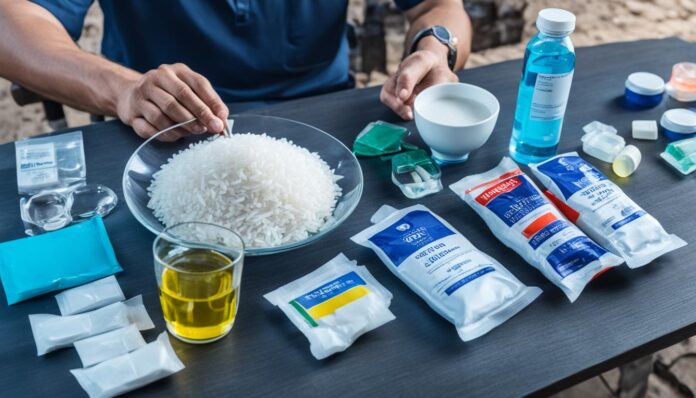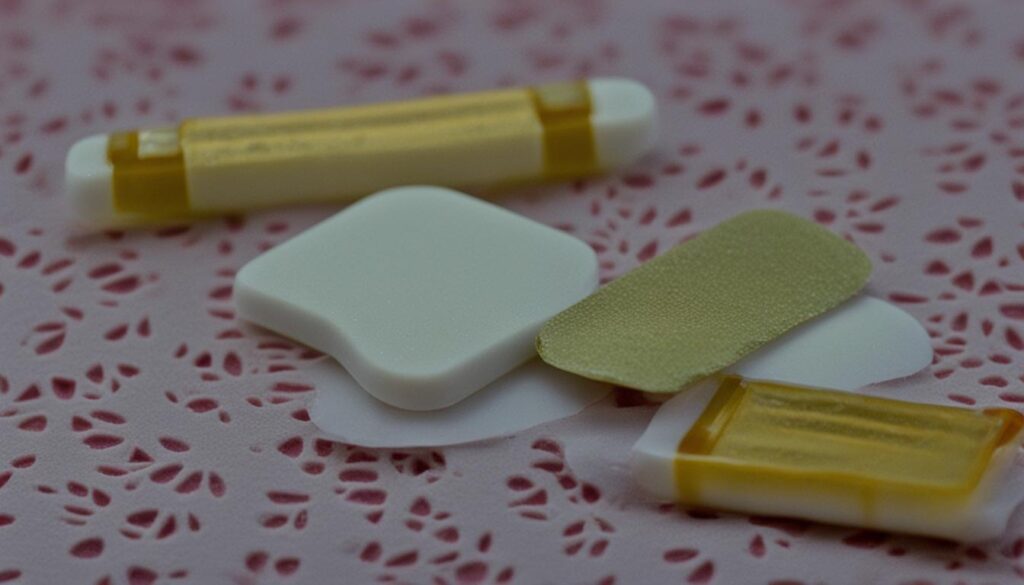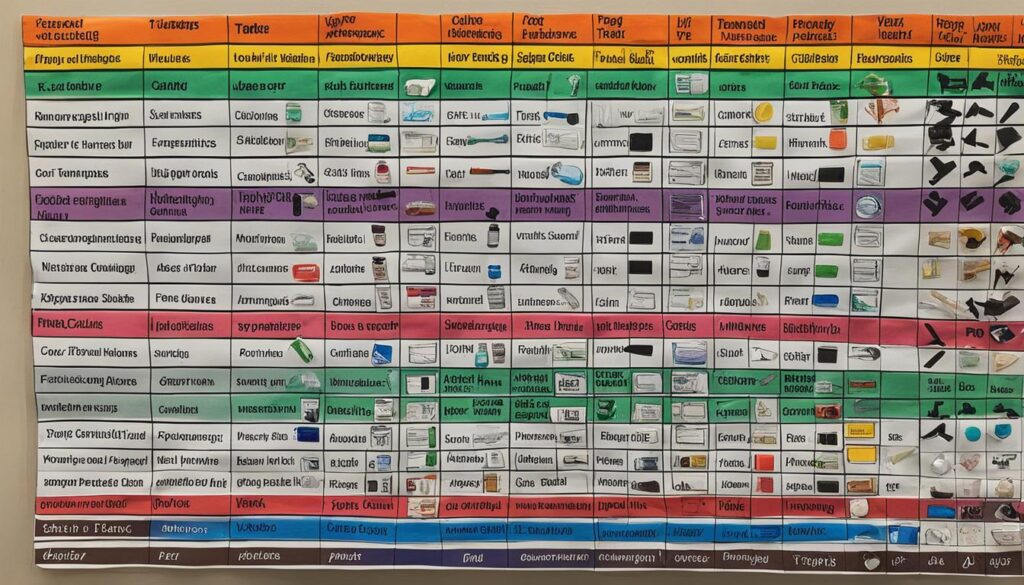If you’re a frequent traveler, one ailment that you may have experienced while on the road is traveler’s diarrhea. This health condition can be caused by a variety of factors, including bacterial infections from contaminated food and water. It’s essential to know your treatment options should you start to feel unwell.
In this article, we’ll discuss different treatment options for traveler’s diarrhea, including natural remedies and medication. We’ll also provide information on prevention tips and dietary changes that can help you manage and recover from this condition effectively.
Traveler’s diarrhea treatment is an important topic to understand when traveling. Let’s explore the options available so you can be prepared for whatever may come your way during your travels.
Natural Remedies for Traveler’s Diarrhea
If you’re looking for a natural way to ease the discomfort of traveler’s diarrhea, there are plenty of home remedies and natural treatments that can help alleviate your symptoms without resorting to medication.
1. Stay hydrated
One of the most important things you can do while experiencing traveler’s diarrhea is to keep your body hydrated. Drinking clear fluids like water, broth or an electrolyte replacement drink can help replenish lost fluids in your body.
2. Try ginger
Ginger is a natural cure for a variety of digestive issues, including traveler’s diarrhea. You can try ginger tea, ginger candies or ginger capsules to help calm your stomach and alleviate symptoms.
3. Keep up with probiotics
Probiotics can support gut health and help alleviate traveler’s diarrhea. You can try taking probiotic supplements or eating probiotic-rich foods like kimchi, kefir or yogurt.
4. Use essential oils
Essential oils like peppermint, chamomile and oregano have been shown to have antibacterial and antiviral properties. Using these oils in a diffuser, inhaling them directly or applying them topically can help alleviate symptoms of traveler’s diarrhea.
5. Eat bland foods
While your stomach is recovering from traveler’s diarrhea, it’s best to stick to bland foods like rice, bananas, applesauce and toast. These foods are easy to digest and can help soothe an upset stomach.
By trying these natural remedies, you can help alleviate symptoms of traveler’s diarrhea and get back to enjoying your travels. Remember to stay hydrated and consult with a healthcare professional if your symptoms persist or worsen.
Medication for Traveler’s Diarrhea
If you experience severe diarrhea while traveling, medication may be necessary to manage your symptoms and promote recovery. There are different types of medication available that can help alleviate symptoms of traveler’s diarrhea, including antibiotics and prescription medications.
Antibiotics for Traveler’s Diarrhea
In some cases, your healthcare provider may prescribe antibiotics to treat traveler’s diarrhea caused by bacterial infection. Antibiotics like ciprofloxacin and azithromycin can help reduce the duration and severity of symptoms. However, it’s important to note that the overuse of antibiotics can lead to antibiotic resistance, so it’s crucial to only take antibiotics when prescribed by a healthcare professional.
Prescription Medications for Traveler’s Diarrhea
Prescription medications like loperamide and bismuth subsalicylate can also be effective in managing symptoms of traveler’s diarrhea. Loperamide works by slowing down intestinal movement, while bismuth subsalicylate helps reduce inflammation and kills bacteria in the digestive tract. These medications can be helpful in easing diarrhea, cramping, and nausea.
Note: Always consult with a healthcare professional before taking any antibiotics or prescription medications. These medications may not be suitable for everyone, and incorrect use can lead to side effects or other complications.
Prevention Tips for Traveler’s Diarrhea
Traveler’s diarrhea can be prevented by taking certain precautions and following basic hygiene practices.
Stay Hydrated
Drinking plenty of water and electrolyte-rich drinks can help avoid dehydration caused by diarrhea. Avoid unpurified water and ice, as well as drinking tap water in areas where sanitation is poor.
Practice Good Hygiene
Wash your hands frequently with soap and water, or use hand sanitizer when hand washing is not possible. Avoid touching your face and mouth with your hands, and keep your nails trimmed.
Eat Carefully
Avoid raw or undercooked meats and seafood, as well as fruits and vegetables that cannot be peeled or washed thoroughly. Stick to foods that are cooked and served hot, and avoid street vendors whose food preparation may not be sanitary.
Take Precautions with Medications
If you need to take medications during your travels, only use medications that have been prescribed to you by a doctor or purchased from a reputable pharmacy. Keep your medications in their original packaging and always carry them with you.
Consider Vaccinations
Speak with your doctor about getting vaccinated for diseases that are common in the areas you will be visiting. Vaccinations can greatly reduce your risk of contracting illnesses like traveler’s diarrhea.
Rehydration for Traveler’s Diarrhea
Dealing with traveler’s diarrhea can be challenging, but rehydration is a crucial aspect of the recovery process. When you experience diarrhea, your body loses a significant amount of fluids and electrolytes, which can lead to dehydration. This is why replenishing lost fluids is essential for restoring your body’s natural functioning.
You can rehydrate your body in various ways. Drinking water is the most obvious and straightforward method. However, you can also consume drinks that are rich in electrolytes, such as sports drinks, coconut water, and rehydration solutions.
It is also essential to avoid alcohol and caffeine since these drinks can worsen dehydration. When choosing fluids, opt for clear liquids like water, broth, or diluted fruit juices. These choices provide the necessary fluids and electrolytes without introducing unnecessary sugars or other detrimental substances.
Rehydration is essential for managing traveler’s diarrhea, as it helps prevent dehydration and can encourage faster recovery. Here is a brief table showcasing some effective fluids and electrolytes replacements:
Effective Fluids and Electrolytes Replacements
| Fluid/Electrolyte | Description |
|---|---|
| Water | The most accessible and readily available fluid replacement. It helps hydrate and flush out toxins. |
| Coconut water | Rich in potassium, magnesium, and sodium- excellent for rehydration. |
| Sports Drinks | These contain essential electrolytes that can restore hydration. They should not be the primary choice, but an option when other alternatives are scarce. |
| Rehydration Solutions | These come in packets or ready-to-drink varieties and contain a mix of electrolytes and glucose to restore fluids. |
Rehydration is essential for managing traveler’s diarrhea. Whether you choose water, coconut water, sports drinks, or rehydration solutions, make sure you consume fluids rich in electrolytes to avoid dehydration.
Probiotics for Traveler’s Diarrhea
If you’re looking for a natural remedy to ease your traveler’s diarrhea symptoms, probiotics can provide significant benefits. Probiotics are live microorganisms that can help to restore the balance of good bacteria in your gut. By adding healthy bacteria to your system, probiotics can improve digestion and support overall gut health. They can also help to prevent the growth of harmful bacteria that can cause diarrhea.
Probiotic-rich foods such as yogurt, kefir, and fermented vegetables are excellent sources of beneficial bacteria. However, if you’re traveling to an area where the water and food sources aren’t reliable, you may want to consider taking a probiotic supplement. Look for a high-quality probiotic that contains a variety of strains and has at least 10 billion CFUs (colony-forming units).
The Benefits of Probiotics for Traveler’s Diarrhea
A study published in the Journal of Travel Medicine found that taking probiotics can help to reduce the risk of traveler’s diarrhea by up to 8 percent. Another study published in the World Journal of Gastroenterology showed that probiotics can reduce the duration and severity of traveler’s diarrhea symptoms. Probiotics can also provide immune system support, which is especially important when traveling to new places where you may be exposed to unfamiliar pathogens.
How to Incorporate Probiotics into Your Travel Diet
Probiotics are available in supplement form and can be purchased in most health food stores. In addition, many foods are rich in probiotics and can easily be incorporated into your travel diet. Here are some probiotic-rich foods to consider:
| Food | Probiotic Strain | CFUs per Serving |
|---|---|---|
| Yogurt | Lactobacillus bulgaricus | 1 billion to 2 billion |
| Kefir | Lactobacillus acidophilus | 2 billion to 5 billion |
| Miso | Lactobacillus plantarum | 10 billion to 30 billion |
| Sauerkraut | Lactobacillus plantarum | 10 million to 1 trillion |
| Kombucha | Various | 1 billion to 100 billion |
Adding probiotic-rich foods to your diet can not only help prevent traveler’s diarrhea, but they can also support overall health and wellness.
Over-the-Counter Medications for Traveler’s Diarrhea
If you’re looking for quick relief from traveler’s diarrhea, over-the-counter medications can be a handy solution. They can quickly relieve diarrheal symptoms and help get your travel plans back on track. Here are some of the most common over-the-counter medications to consider:
| Medication | How it works | Precautions |
|---|---|---|
| Loperamide (Imodium) | Slows down the activity of the intestinal tract to reduce diarrhea | Only use for short-term treatment (less than two days), avoid if you have a fever or blood in stools |
| Bismuth subsalicylate (Pepto-Bismol) | Reduces inflammation in the digestive tract and kills bacteria | Avoid if you are allergic to aspirin, have a medical condition or take medications that interact with salicylates, or are pregnant or breastfeeding |
It is important to note that while over-the-counter medications can provide temporary relief, they do not cure traveler’s diarrhea. If symptoms persist or worsen, seek medical attention.
Prescription Medications for Traveler’s Diarrhea
If natural remedies or over-the-counter medications don’t relieve your symptoms of traveler’s diarrhea, a doctor may prescribe prescription medications. These medications can be particularly helpful in severe cases of traveler’s diarrhea.
Antibiotics are the most common prescription medications used to treat traveler’s diarrhea. They work by killing the bacteria that are causing the infection. Common antibiotics used include Azithromycin, Ciprofloxacin, Levofloxacin, and Rifaximin.
Your doctor will determine the appropriate dosage and length of time you need to take the medication. It is important to take the full course of antibiotics as prescribed, even if your symptoms improve before you finish the medication.
It’s also important to note that antibiotics should only be used when necessary and prescribed by a doctor. Overuse of antibiotics can lead to antibiotic resistance, making it more difficult to treat infections in the future.
Side Effects of Prescription Medications for Traveler’s Diarrhea
“Side effects of prescription medications for traveler’s diarrhea can include nausea, vomiting, abdominal pain, and in rare cases, allergic reactions.”
Your doctor can advise you on the potential side effects of the medication they prescribe. If you experience severe or concerning side effects, contact your doctor immediately.
It is also important to inform your doctor of any other medications or supplements you are taking, as they may interact with the prescribed medication and cause adverse effects.
When to Seek Medical Attention
If you are experiencing symptoms of traveler’s diarrhea that persist for more than three days or are accompanied by a fever, seek medical attention immediately. Other warning signs that may require medical attention include:
- Blood in your stool
- Severe abdominal pain
- Dizziness or lightheadedness
- Dehydration, including symptoms such as dark urine, dry mouth, and fatigue
It’s important to note that infants, young children, pregnant women, and individuals with weakened immune systems may be more susceptible to complications from traveler’s diarrhea and may require quicker medical attention.
Pro Tip: If you are traveling to a high-risk area or have a history of traveler’s diarrhea, it may be a good idea to carry a small medical kit with you, including anti-diarrheal medication and rehydration salts.
Remember, getting medical attention promptly can help prevent more serious health issues from developing. Don’t hesitate to seek medical attention if you have any concerns about your symptoms.
Managing Traveler’s Diarrhea with Dietary Changes
If you’re currently experiencing traveler’s diarrhea, certain changes to your diet can help alleviate symptoms and improve your gut health.
First and foremost, it’s crucial to stay hydrated. Drink plenty of fluids, including water, broths, and soups, to replace any fluids lost due to diarrhea. Avoid consuming alcohol, caffeine, and carbonated beverages as these can all exacerbate dehydration and digestive issues.
Next, consider incorporating bland, easily digestible foods into your diet. Eat small, frequent meals throughout the day, and focus on foods that are low in fat and fiber. Steaming or boiling vegetables can make them easier to digest, while plain rice, toast, and crackers can help provide relief.
It’s also important to avoid certain types of food while you have traveler’s diarrhea. This includes spicy, fried, and greasy foods, as well as dairy products, which can be difficult for the body to process in the midst of digestive issues.
Pro tip: Probiotics, which can be found in yogurt and other fermented foods, may also help promote a healthy gut and reduce symptoms of traveler’s diarrhea.
Foods to Eat and Avoid with Traveler’s Diarrhea
| Foods to Eat | Foods to Avoid |
|---|---|
| Boiled potatoes | Greasy or fried foods |
| Steamed vegetables | Spicy foods |
| Plain rice | Dairy products |
| Toast or crackers | |
| Probiotic-rich foods |
By being mindful of your diet and making certain dietary changes, you can help manage traveler’s diarrhea and promote a speedy recovery.
Conclusion
Congratulations on completing this article about effective treatment options for traveler’s diarrhea. Now that you are informed about various treatment options, natural remedies, and medication, you can confidently manage the symptoms of traveler’s diarrhea while traveling.
Remember, prevention is always better than cure. Taking precautions such as avoiding tap water, being cautious about food choices, and practicing good hygiene can significantly reduce the risk of getting traveler’s diarrhea.
If you do experience symptoms, it is essential to remain hydrated and treat the symptoms promptly. Natural remedies like ginger, garlic, and probiotics, as well as over-the-counter medications and prescription drugs, can help manage symptoms.
It’s crucial to be prepared when traveling to countries where traveler’s diarrhea is prevalent, especially if you have a pre-existing medical condition. Always consult your doctor before you travel and ask for advice on managing your medical condition while away.
By being well-informed and taking necessary precautions, you can ensure a safe and enjoyable travel experience. Bon voyage!

















































